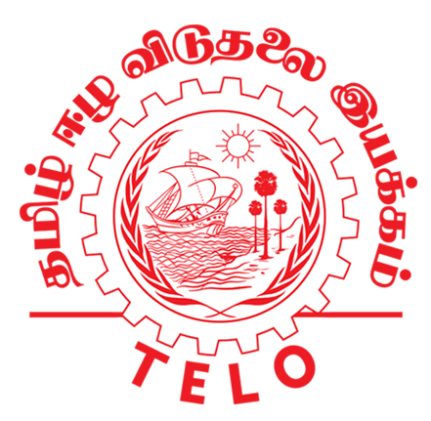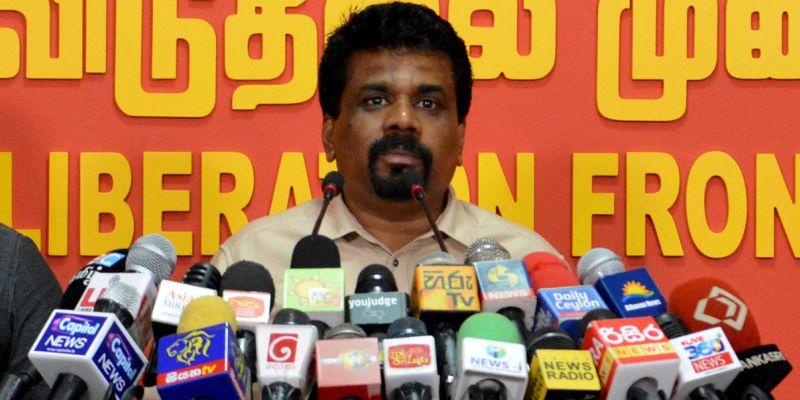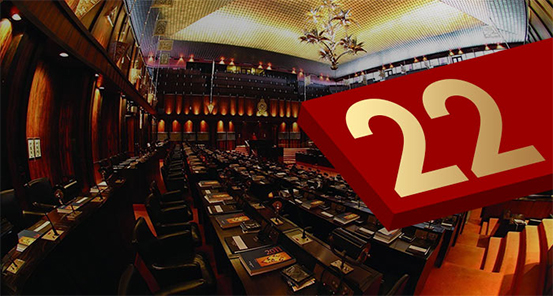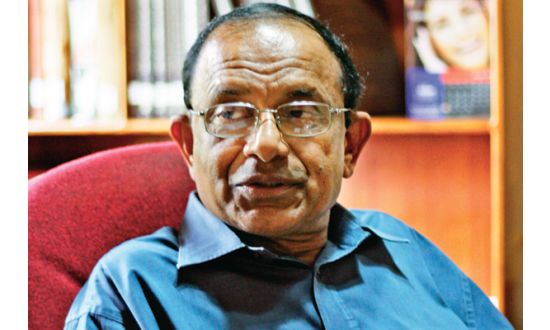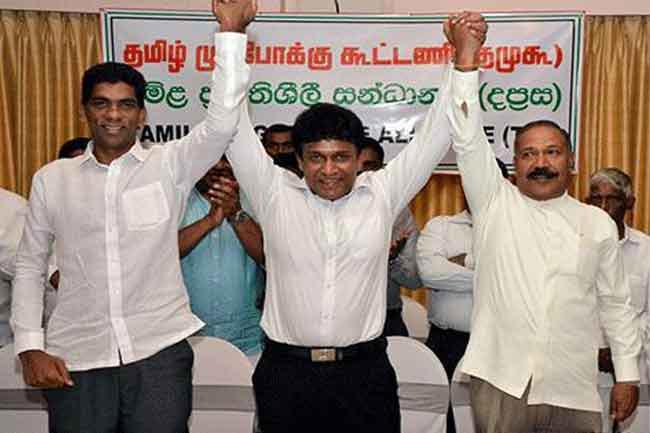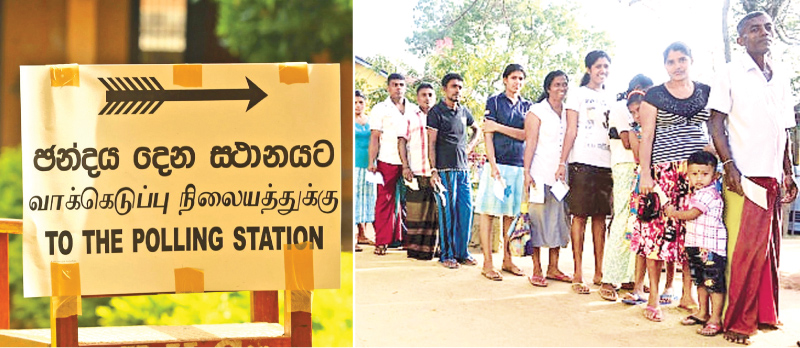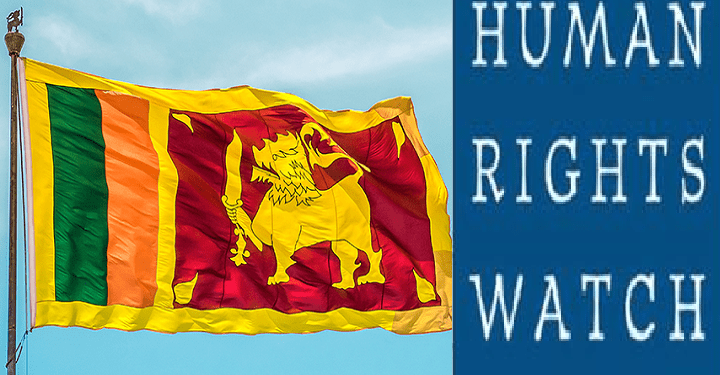The anti-Tamil pogrom ofJuly 1983 is an unforgettable chapter in the post-independence history of Sri Lanka. The catastrophic events of that dark month drastically affected the lives of several Tamils in Sri Lanka. As a Sri Lankan Tamil journalist, ‘Black July’ did have an effect on me in both personal and professional capacities. Furthermore, my family – like thousands of other Tamil families – was also affected and displaced during those turbulent times.
I was spared the full blast of that violence because I was not in Colombo then. I was on assignment to cover the Tamil United Liberation Front (TULF) Party convention in Mannar. Furthermore my family members though affected were fortunate in not having to undergo suffering on the scale of what some other Tamil families underwent then. Our family felt blessed in the sense that none of us were killed or physically hurt.
For nearly four decades I never wrote about ‘Black July’ from a personal perspective. I did not want to revive those painful memories. However, I did write about my family’s ‘black July’ experience in our sister paper the “Daily FT” last year to denote the 40th anniversary of ‘Black July’. Much of what I wrote then was from what I heard from my family members about their ordeal. This week’s column is a modified version of that article.
Family
My family comprised six persons in 1983. My parents, two sisters, brother and myself. I was the eldest followed by a sister, brother and sister. None of the children were married then. My father was a lawyer based in Kurunegala. My mother was a teacher. So too was the elder of my two sisters. My brother and I were working in Colombo, staying separately. My youngest sister was studying for her GCE (A) exam.
My mother retired in Kurunegala as a teacher in May 1982. After retirement, she wanted to move to Colombo and be with her children. She had earlier taught in Colombo for 17 years and always felt that Colombo was home. So we rented a part of a house along Cascia Avenue in Ratmalana. My mother, brother and youngest sister resided there.
My father and my other sister remained in Kurunegala and would come over to Colombo for the weekends. I continued to retain my room in Kotahena as I used to work late nights then at “The Island”. I would shuttle between Kotahena and Ratmalana relying on the 155 bus.
On Friday 22 July 1983 morning I left for Mannar to cover the TULF convention. I was in Mannar during the weekend when the anti-Tamil violence erupted. My father and sister had come down to Ratmalana for the 23-24 July weekend. My sister a teacher at the Tamil school in Kurunegala departed early morning on Monday 25 July to take the bus from Pettah and return to Kurunegala. My father stayed on intending to return to Kurunegala on Tuesday.
Ratmalana
Our Sinhala landlord was living in the adjacent section of the same house we were in at Ratmalana. He came over and said he had news of anti-Tamil violence in Borella and Thimbirigasyaya. He advised my family to hide in the marsh behind our house if a mob attacked. Meanwhile the morning newspapers had published the news of 13 soldiers being killed by the Liberation Tigers of Tamil Eelam (LTTE) in Jaffna. This news was also relayed over TV and Radio on the same day. The violence began escalating and spreading.
Mobs went into action in Ratmalana too. The mob that came down Cascia Avenue was led by the son of a United National Party (UNP) municipal councillor. My parents, brother and sister went behind to the marsh and concealed themselves in the bushes. There were water monitors and snakes moving about. My father and brother were armed with a large kitchen knife and hoe. My mother had had a minor accident some weeks ago and found it exceedingly difficult to crouch.
The mob leaders came to our landlord and inquired from him about my family. They had details of Tamils living in the vicinity. Our landlord said that his tenants had fled early morning upon hearing of the troubles. The mob then went to our entrance and attempted to break open the door. Some petrol was poured on the porch floor in a bid to set fire. When our landlord protested, he was told that they wanted to burn our furniture. Our landlord pleaded with the mob not to do so, saying the furniture belonged to him and not to the tenants. The mob then went off warning our landlord to inform them if my family returned home.
After nightfall, my family left the marsh and went back to the house through the rear. They spent the night there without putting on the lights. All seemed quiet at the crack of dawn on Tuesday 26 July. Our landlord wanted us to leave his house. My parents and two siblings walked to the Mt. Lavinia Police Station seeking protection. It was very early in the morning. There was no trouble along the way. Several Tamil families were at the station.
After a while, the Police escorted the families including mine to the newly set up refugee camp at the Ratmalana airport. As was to be expected the conditions at the overcrowded airport camp were terrible. Lack of space, poor sanitary facilities and inadequate food were but some of the problems.
Kurunegala
My family’s worry then was about my sister in Kurunegala. They knew I would be safe in “Tamil-speaking” Mannar. There were reports of a Kurunegala- bound bus from Colombo being stopped at Alawwa and all Tamil passengers being killed and hung on the bridge. So my family kept worrying whether she was safe or not. As for me I was worried sick about what may have befallen my family while I was safe in Mannar.
My sister however had reached Kurunegala safely. She stayed indoors at home quietly without venturing out. Her worry was about the rest of the family. One of our neighbours was a senior Sinhala police officer. So Tamils in the neighbourhood were well-protected.
Mannar
In my case, I was frantic with anxiety about the fate of my family. In those days there were no mobile phones. There was also the problem of gaining access to a telephone in Mannar and calling long distance to Colombo. Fortunately, for me I made contact with a Tamil public official named Terrence Philippupillai who was the secretary of the then Mannar district minister and Mutur MP M.E.H. Maharoof.
In those days I used to write a weekly column “Behind the Cadjan Curtain” for the “Sunday Island”. I found to my delight that the Mannar DM’s Secretary Terence was a regular reader and a fan. Thus telephone access was not a problem thereafter.
I was in regular touch with “The Island” editorial from Mannar. The editor Vijitha Yapa was out of the country when the violence began. The then deputy editor Gamini Weerakoon was in charge. I kept myself informed of what was happening by calling the editorial regularly. My colleagues and friends Ajith Samaranayake and Prasad Gunewardene took the office vehicle to Ratmalana and found out through our landlord that my family was safe at the airport camp.
Hulftsdorp
In the meantime the authorities at the Ratmalana Airport camp began allowing people to make local calls. My parents got in touch with one of my cousins, Noble Vethanayagam. He was a UNP member of the Colombo District Development Council (DDC) and closely associated with Prime Minister Ranasinghe Premadasa at that time. Noble Anna had moved to a new house in Bambalapitiya and turned his earlier residence in Hulftsdorp into his political office.
My cousin Noble Anna’s Hulftsdorp house had transformed into a mini-refugee camp with relatives seeking “asylum” there. It had Police protection. Arrangements were made for my family to move to Noble Anna’s place in Colombo 12.
My family and most of our relatives are Methodists. On Friday 29 July, three Methodist clergymen arrived in a van to take my family to Hulftsdorp. Since the vehicle was full of people, it was decided that my mother and sister would go in the van while my father and brother would follow by bus. The violence in Colombo and its outskirts had subsided by Thursday 28th and things seemed to be slowly returning to normal. But the situation changed suddenly.
Narrow escapes
A rumour began spreading that the Tigers were attacking Colombo. This was only a rumour but it provided a pretext for Tamils to be attacked again. Sadly several Tamils who had left the relative safety of refugee camps were brutally murdered on that notorious “Koti Dawasa” or Tiger Day. Both my father and brother had narrow escapes on that Friday.
They had started out from the airport camp and walked to Galle Road from where they intended to take a bus, taxi or three-wheeler to Hulftsdorp. But when they reached Galle Road, both got entangled with a furious mob going in search of Tamils again. My father and brother got separated in the melee.
My brother mingled with the mob and became part of it for a while. A section of the mob began marching down to the Airport camp threatening to destroy the Tamil refugees there. My brother marched along with them shouting slogans. Once the mob reached the airport, my brother slipped out and went into the camp showing his camp ID card. The mob ranted and raved, abusing in raw filth, the naval personnel guarding it. But the sailors stood firm and gradually the mob dispersed.
My father had a nasty encounter with another section of the mob. Some suspected he was a Tamil and threatened him. Since my father spoke Sinhala perfectly with the correct diction, they could not detect his ethnicity. Then he was asked to recite a Buddhist Gatha. My father replied truthfully that he was a Christian and not a Buddhist. Someone throttled his neck. My father gasped in Sinhala: “Is it worth your while to kill an old man like me”. He was let off. My father also went back to the Airport camp.
Methodist Clergymen
The van with Methodist clergymen was also accosted by a mob.The Sinhala pastors talked their way out. It was however decided that travelling to Colombo city was dangerous. So the vehicle changed course and reached Moratuwa. My mother and sister were given shelter at a Sinhala Methodist residence in Rawatawatte over the weekend. On 31 July Sunday evening, the Methodist priests took my mother and sister to Hulftsdorp.
They were in for a happy and pleasant surprise. My other sister in Kurunegala had come to Noble Anna’s safe house in Hulftsdorp. She was brought there in a Police jeep thanks to the help of the Sinhala Police officer neighbour. My father and brother also came to Hulftsdorp on Monday. The whole family – except for myself – was united again.
The Hulftsdorp house was full of people as more relatives had flocked there. So it was decided that only the women and children would stay there. My father and brother moved out and subsequently found accommodation at the refugee camp set up at S. Thomas’ College Mt. Lavinia.
My family informed “The Island” that all were safe and that my mother and sisters were at our cousin Noble’s house in Hulftsdorp. I spoke to them by telephone from the Mannar district minister’s office.
Returned to Colombo
I returned to Colombo on 4 August 1983. Muhammed, a Muslim journalist friend in Mannar who was the local correspondent for a Tamil newspaper, had made arrangements with a Muslim businessman to give me a ride to his hometown Kandy. I was to pose as a Muslim relative of his in case there was trouble.
The violence had diminished by then and the journey by car from Mannar to Kandy was uneventful. I got into a Colombo-bound bus from Kandy and went straight to the Island office at Bloemendhal Road. My friends and colleagues were happy to see me.
I plunged into work and started writing immediately under my byline. This was my way of coping with what had happened. Upon seeing my byline in the newspaper, many friends, contacts and news sources began phoning and talking to me.
I stayed in the Island premises, eating at the Sinhala and Muslim restaurants close to the office. I bathed in the shower at the drivers’ quarters and slept at night on the editorial department desks using the newspaper files as” pillows”. My friends Ajith, Prasad and Kule (K.C. Kulasinghe) would keep me company at night.
The editor Vijitha Yapa who had returned to Sri Lanka was worried about my sleeping over in the office and using the drivers quarters to bathe. Vijitha who had for long been a member of the MRA (Moral Re-armament) organisation was concerned about my safety. He was a sensitive soul who broke down and cried in front of me apologising for the hurt done to Tamils by some Sinhalese.
Vijitha put me up in a secluded room at his mother-in-law’s house. He would pick me up in his car in the mornings and drop me off later at night. It was a well-meaning gesture by the editor and my hostess was most kind and considerate. Much as I appreciated their kindness, I was somewhat uncomfortable about imposing myself upon them.
So I returned to my room at Kotahena. It was part of a large hostel with over 30 Tamil boarders. It was now deserted. I slept alone in my room and continued to work at the Island editorial. Gradually others too began returning to the hostel.
Kaddaively
Meanwhile my family tried to return to Ratmalana but our landlord would not allow it saying that he was frequently asked about our whereabouts and warned not to let us return. So my mother and two sisters went by train to my mother’s ancestral village Kaddaively in Jaffna. After some weeks, we shifted our furniture from Ratmalana to Jaffna as our former landlord wanted it removed.
My father returned to Kurunegala while my brother and I continued to live and work in Colombo. After some months my sister had to return to work in Kurunegala or lose her job as a teacher. Under those circumstances my mother and two sisters left Jaffna and returned to Kurunegala.
Thereafter my parents and sisters lived in Kurunegala. My brother and I were in Colombo. The important thing was that all members of the family were safe and had “survived” ‘Black July’. We were blessed in that way.
Down memory lane
This then is the story of my family’s ‘Black July’ experience. It is but one of the many stories of that time. Each tale was different in the details but all were the same in essence. I have tried to narrate our family tale in a detached manner but going down memory lane has been quite emotional and painful.
D.B.S.Jeyaraj can be reached at dbsjeyaraj@yahoo.com




